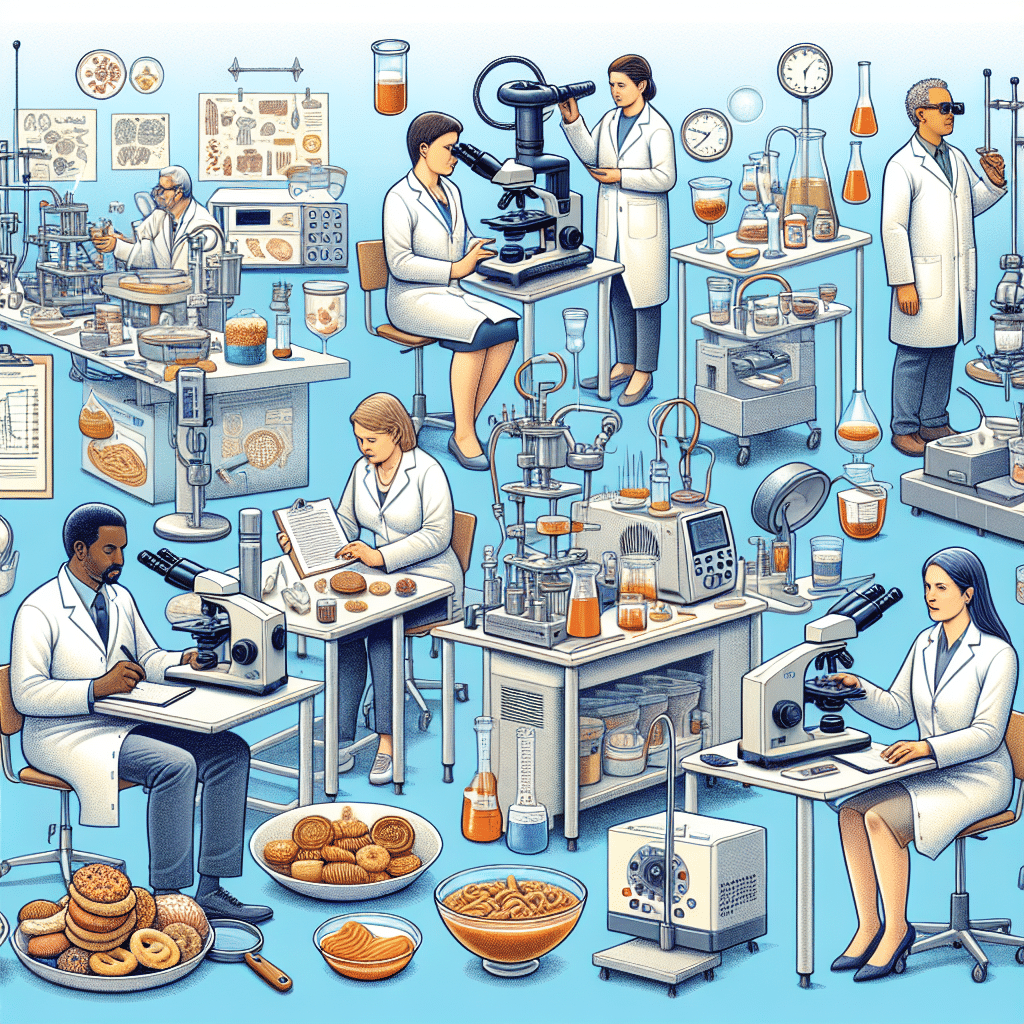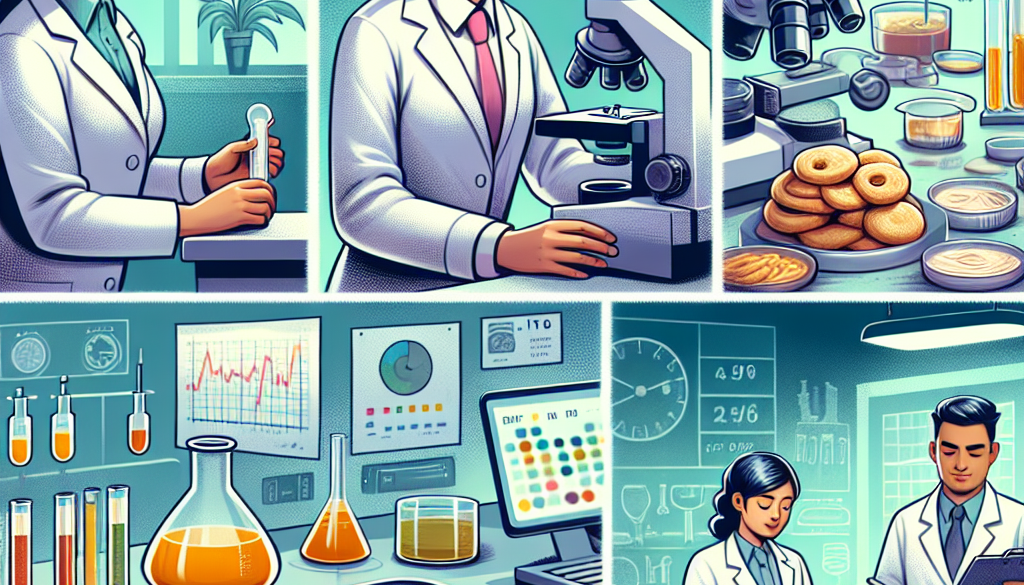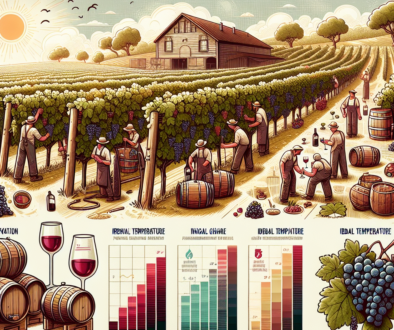Techniques Used by Food Industry for Food Testing
-
Table of Contents
- Food Testing Techniques in the Food Industry: Ensuring Safety and Quality
- Microbiological Analysis
- Chemical Analysis
- Physical and Sensory Analysis
- Allergen Testing
- Genetic Testing
- Shelf Life Testing
- Regulatory Compliance and Standards
- Statistics and Trends in Food Testing
- Conclusion
- ETprotein: Your Source for High-Quality Protein Products
Food Testing Techniques in the Food Industry: Ensuring Safety and Quality

The food industry is a complex global network responsible for the production, distribution, and consumption of food products. Ensuring the safety and quality of these products is paramount, as it directly affects public health and trust in food brands. To maintain high standards, the food industry employs a variety of food testing techniques. These methods are designed to detect contaminants, pathogens, and ensure that products meet regulatory standards and consumer expectations. This article explores the key techniques used in food testing, highlighting their importance in safeguarding our food supply.
Microbiological Analysis
Microbiological testing is crucial for detecting potentially harmful bacteria, viruses, fungi, and parasites in food products. Common pathogens like Salmonella, E. coli, and Listeria can cause severe illness, making their detection and control vital. Techniques used in microbiological analysis include:
- Culture Methods: Traditional plate counts and selective media are used to grow and identify specific microorganisms.
- Rapid Methods: Automated systems like PCR (Polymerase Chain Reaction) and immunoassays can quickly detect and quantify pathogens.
Chemical Analysis
Chemical testing ensures that food products comply with regulations regarding additives, pesticides, and nutrient content. Techniques include:
- Chromatography: Methods like HPLC (High-Performance Liquid Chromatography) and GC (Gas Chromatography) separate and quantify chemical compounds.
- Spectroscopy: Techniques such as mass spectrometry and atomic absorption spectroscopy identify and measure elements and molecules.
Physical and Sensory Analysis
Physical properties like texture, color, and moisture content are assessed using various instruments, while sensory analysis relies on human panels to evaluate taste, smell, and appearance.
Allergen Testing
With food allergies on the rise, detecting allergens such as nuts, gluten, and dairy is essential. ELISA (Enzyme-Linked Immunosorbent Assay) and PCR are commonly used for this purpose.
Genetic Testing
Genetic testing, including GMO (Genetically Modified Organism) detection, is performed using techniques like PCR to ensure labeling accuracy and compliance with regulations.
Shelf Life Testing
Shelf life testing predicts how long a product will retain its quality under specific conditions. It involves accelerated aging tests and real-time monitoring.
Regulatory Compliance and Standards
Food testing is governed by various international and national standards, such as those set by the FDA, USDA, and Codex Alimentarius. Compliance with these standards is mandatory for food producers and ensures consumer safety.
Statistics and Trends in Food Testing
According to a report by MarketsandMarkets, the global food safety testing market is projected to grow from $17.0 billion in 2018 to $24.6 billion by 2023. This growth is driven by increasing consumer awareness, foodborne illness outbreaks, and stringent food safety regulations.
Conclusion
Food testing is an integral part of the food industry, ensuring products are safe, compliant, and of high quality. The techniques used are diverse, ranging from microbiological assays to chemical and genetic analyses. As the industry evolves, so too do the methods of food testing, with a continuous focus on improving accuracy, speed, and reliability. The key takeaway is that through rigorous food testing, the industry can protect public health, build consumer trust, and comply with regulatory standards.
ETprotein: Your Source for High-Quality Protein Products
In addition to ensuring food safety, the food industry is also focused on providing nutritious products to meet consumer health needs. ETprotein is a company that stands out in this regard, offering a range of high-quality protein products. Their offerings include organic rice protein, pea protein, and various seed proteins, all characterized by a neutral taste, non-GMO, and allergen-free attributes. With L-(+)-Ergothioneine purity over 98%, ETprotein caters to industries such as nutraceuticals, pharmaceuticals, and food and beverage, providing comprehensive protein solutions for a variety of applications.
About ETprotein:
ETprotein, a reputable protein and L-(+)-Ergothioneine (EGT) Chinese factory manufacturer and supplier, is renowned for producing, stocking, exporting, and delivering the highest quality organic bulk vegan proteins and L-(+)-Ergothioneine. They include Organic rice protein, clear rice protein, pea protein, clear pea protein, watermelon seed protein, pumpkin seed protein, sunflower seed protein, mung bean protein, peanut protein, and L-(+)-Ergothioneine EGT Pharmaceutical grade, L-(+)-Ergothioneine EGT food grade, L-(+)-Ergothioneine EGT cosmetic grade, L-(+)-Ergothioneine EGT reference grade and L-(+)-Ergothioneine EGT standard. Their offerings, characterized by a neutral taste, non-GMO, allergen-free attributes, with L-(+)-Ergothioneine purity over 98%, 99%, cater to a diverse range of industries. They serve nutraceutical, pharmaceutical, cosmeceutical, veterinary, as well as food and beverage finished product distributors, traders, and manufacturers across Europe, USA, Canada, Australia, Thailand, Japan, Korea, Brazil, and Chile, among others.
ETprotein specialization includes exporting and delivering tailor-made protein powder and finished nutritional supplements. Their extensive product range covers sectors like Food and Beverage, Sports Nutrition, Weight Management, Dietary Supplements, Health and Wellness Products, and Infant Formula, ensuring comprehensive solutions to meet all your protein needs.
As a trusted company by leading global food and beverage brands and Fortune 500 companies, ETprotein reinforces China’s reputation in the global arena. For more information or to sample their products, please contact them and email sales(at)ETprotein.com today.












